Education conferences provide great opportunities to network and learn but I have a bad habit of forgetting important stuff, so I’ve put together these quick tips to help you (and me) get the most out of attending conferences.
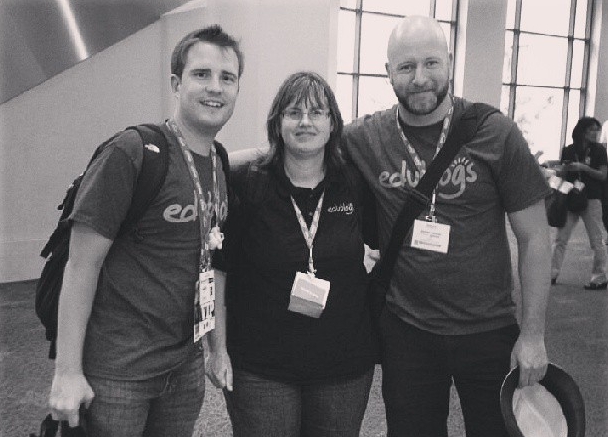
1. Plan ahead
Plan your schedule before arriving at the conference:
- Download or bookmark the conference program for easy reference.
- Check to see if the conference provides an app and install it onto your device (before leaving home!). You’ll find links to the ISTE 2014 mobile app options here and can plan your sessions from directly inside the app.
- Work out which sessions and events you really want to see and set up their schedule in the conference app or as events in Google Calendar.
- Be flexible. Allow time for networking, relaxing, reflecting and checking out the exhibitor hall.
I normally add all flights, accommodation, sessions and events to my Google Calendar as it enables me to refer to my schedule easily on any device. Print off all flight and accommodation details so you can pack in your hand luggage — for those times you don’t have Internet access or you’ve run out of battery on your devices.
2. Organize your devices
Decide which device(s) you absolutely need to take and what programs or apps you want to use. Then make sure you’ve packed all chargers and all apps/programs are working. For multiple devices I’ll often take a power board for ease of overnight charging and a portable charger for mobile charging of my devices.
Lighter and smaller is better! Conferences are long days. I find a tablet is less tiring while allowing me to easily take notes.
Whatever device(s) you choose be prepared to switch to a low tech, or offline option. Large numbers of gadgets trying to access the Internet at conferences can cause issues.
Be prepared to BYO Internet. Most of the conferences I’ve attended can’t handle the number of devices accessing the Internet via their wireless Internet and using your own data plan is the only option.
Decide how you plan to take notes! I use Google Drive for my note-taking and switch to an offline Word processing app or program if necessary. A popular alternative is Evernote. Evernote allows you to add and edit notes both online and offline.
And install a QR code reader on your smartphone. This enables you to quickly scan any QR codes you see displayed around the conference.
3. Comfortable clothes and supplies
Conferences involve lots of walking, networking and long days.
Wear comfortable shoes, clothes, pack snacks and pack a drink each day to keep hydrated. Queues for drinks and snacks are often long at conferences. Carrying a few snacks and drinks allows you to rest and network with others while conserving energy (and money) and avoiding the food lines.
While my sneakers mightn’t win fashion awards — they help me survive the long days!
Pack your devices, chargers, snacks, drinks and any first aid needs into a comfortable backpack. And remember a jacket! It can get cold with air conditioning!
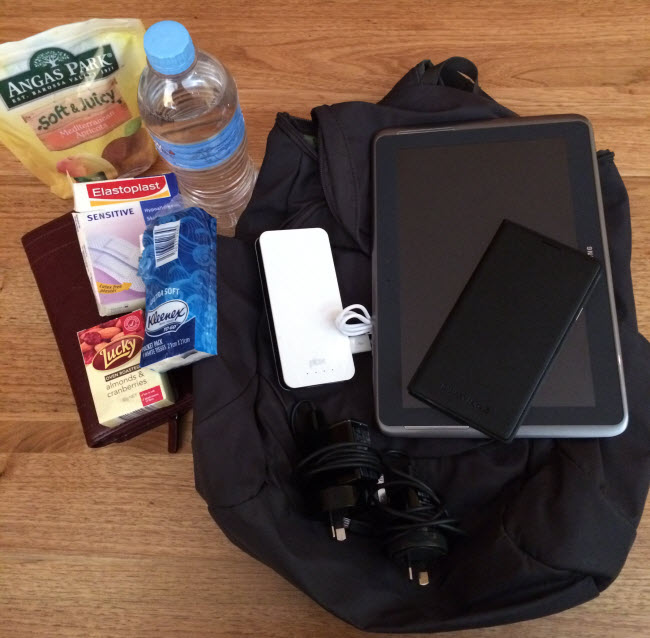
4. Remember to Share
Make time to reflect on what you are learning and share your learning. This helps you learn more, enables others to gain from what you learn and provides others a mechanism to share their thoughts on what you learnt.
Blog posts are a great way of sharing your conference reflections with your community. My approach is I curate the best information and content shared during the conference into a Flipboard magazine (here is my EduTECH Magazine I curated from the EduTech National Congress & Expo which I used to write my Curation: Creatively Filtering Content post).
I generally do all my note taking and curating while at the conference, or soon after the conference ends, and then write my blog posts after the conference when I have more time. This allows me more time to focus on sharing links via Twitter, networking with others and curating while providing more time to reflect on what I’ve learnt after the conference when writing the posts. It’s really about personal preference. Some find that writing their posts during the conference helps get their ideas out of the head so they can focus on the next sessions.
You’ll attend numerous sessions and it’s easy to lose track of what you’ve learnt. Here’s some areas to focus on when recording notes during each session:
- What did you learn? What could you adapt to your work?
- What are the key points covered during the session worth considering when you return from the conference. Most presentations have key messages. Listen for those key messages and try to distill each talk into a few key takeways.
- Compile an action plan document for ideas and actions you want to follow up when you return from the conference.
I’m curating the best resources shared at ISTE 2014 into my ISTE Insights Magazine.
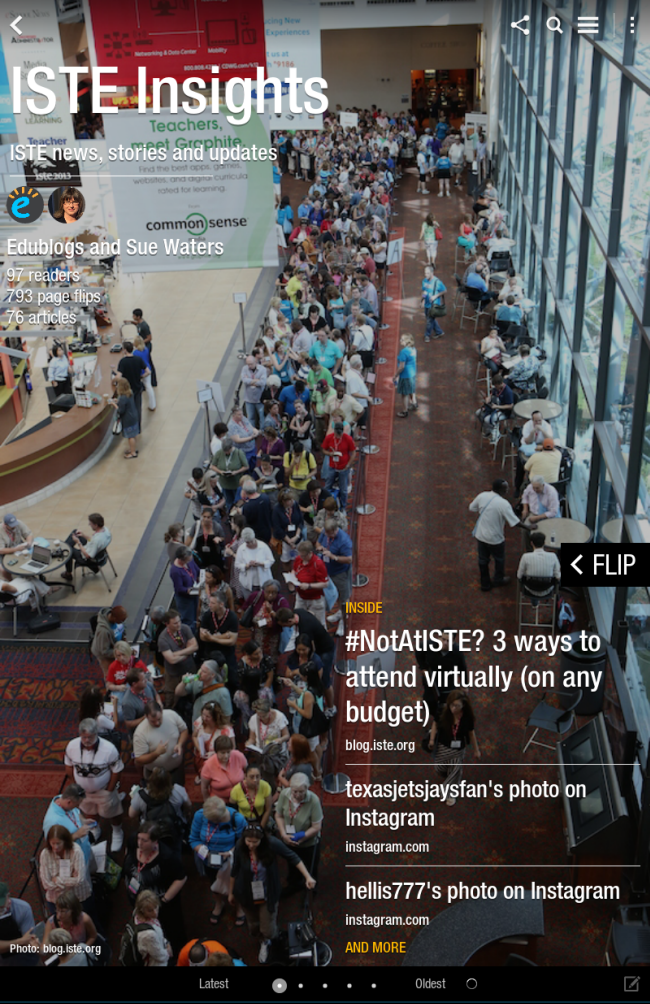
5. Use Twitter
Twitter is one of the most important tools I use at conferences.
Using Twitter I’m able to:
- Connect with others who are attending the conference and organize meet ups.
- Discover what others are learning and share my learning with my network.
- Find out more about conference events.
Check out the Educator’s Ultimate Twitter Guide if you are new to Twitter and tweet me (@suewaters) if you need any help using Twitter.
Most conferences have a conference Twitter account and hashtag:
- The conference twitter account alerts you to important tips and announcements during the event. Check out the EduTECH twitter account to see how it is used at a conference. The conference twitter account for ISTE is @isteconnects.
- The conference hashtag is a great way of connecting with others and sharing your learning from the conference. The official conference hashtag for ISTE is #iste2014.
Read more about using hashtags here.
You can also follow the #ISTE2014 hashtag via Tagboard here.
6. Check out the informal events
Conferences often have informal sessions, areas set up to encourage networking and night time events.
Look for opportunities to join these events and networking lounges. Make an effort to meet new people and engage in a conversation.
Many of my most valuable experiences occur at these informal events where you meet new people and exchange ideas.
Blogger’s Cafe and the ISTE Newbie Lounges are a great way to connect with others when attending ISTE. These are areas where you’ll find educators who are happy to chat and network.
Blogger’s Cafe is located in the center of B2 at ISTE 2014.
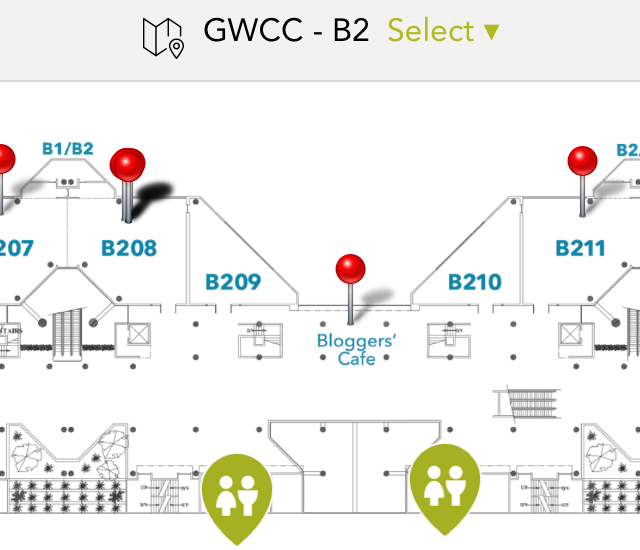
ISTE also has lots of free networking events on most nights. Check out the following links to learn more about the social events:
The EdTech Karaoke party is one of the most popular networking events and is on at Monday June 30 at 7 PM. You register to attend EdTech Karaoke for free here.
Share Your Tips!
What are the best conferences that you have been to?
What tips do you have for others about conferences?
Share your ideas and tips below!
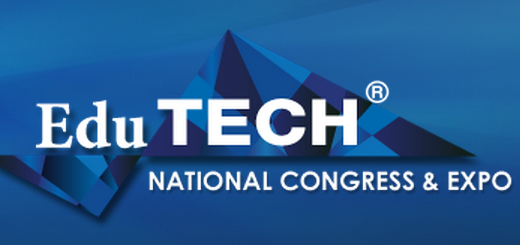
Hi All, thanks for your comments and hope the post helped.
@Ted organised some food snacks to keep me going. Hopefully I remember to pack them.
@Stephen Would be nice to catch up. We’re meeting Monday night at 7 PM at Stokehouse bar if any of you want to join us?
@Kathy thanks for sharing a link to your Haikudeck.
@Karen It is my first EduTECH conference and I’m excited. Twitter takes time to get. Find me at the conference and I can show you some Twitter tricks!
Thank you so much for the tips. This will be my first EduTech conference and I am a buzz with excitement. Soooooo much learning to be done by me…..Twitter..i don’t yet totally get but have had a try,,,,,,,,,OOOOOOOOOO its getting close….
This is a great list. I have created a Haikudeck for a “talk” I will be doing on this subject this weekend. Check it out. https://www.haikudeck.com/p/LQJ5gQ1AO3/conference-junkie
Thanks for all the useful tips. I’m presenting at the Library Managers Congress on the Wednesday. Maybe bump into you somewhere, enjoy EduTech.
STB
Pack a few good snacks. Food options at conference sites can be limited and are often expensive. Or, the lines can be long. Need fuel to keep going.